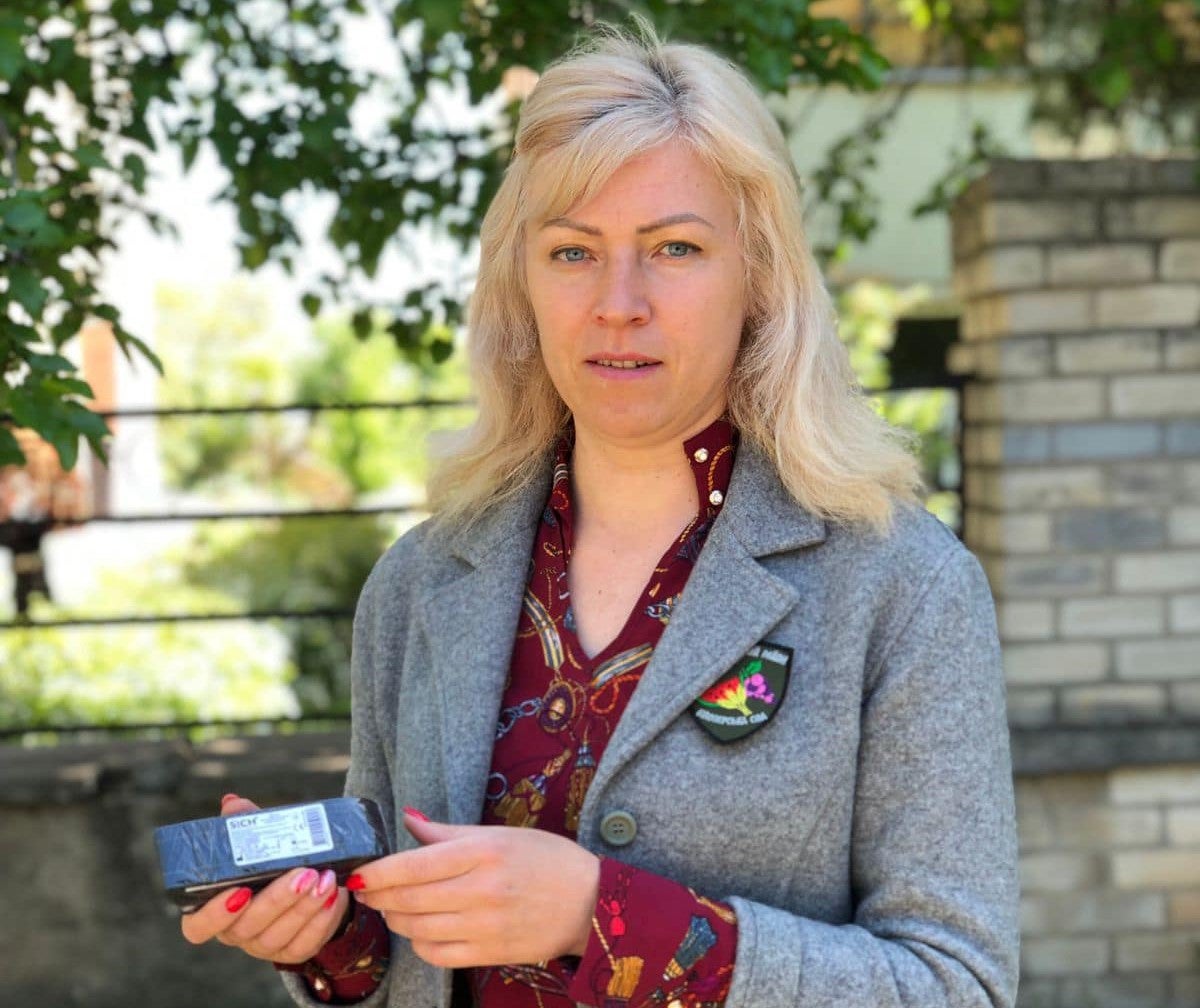Kseniia Mishyna: Leading her community in the frontlines
Date:

Kseniia Mishyna is a community leader from Ukraine. Throughout the war, Kseniia has exemplified selfless dedication and unwavering resilience as the village headwoman of the Dniprovks district in Bilozershchina, Kherson region, where she manages four villages, inspiring change and providing crucial support to her community.
As the village headwoman, Kseniia’s responsibilities include safe evacuation of local residents, sourcing vital items such as fire extinguishers and generators, and overseeing the maintenance of electricity and gas networks. Her adept driving skills allow her to navigate the dangerous front lines, where missile attacks are a daily occurrence.
In areas where basic local infrastructure has collapsed, Kseniia provides essential humanitarian aid. On a regular basis, she loads a full car with bread and delivers it to areas dangerous to enter, due to the ongoing security risks. Every day, she overcomes dozens of challenges, addressing the diverse needs and requests of residents. The impact of her work is crucial, yet the need for support remains urgent.
Despite her resilience, Kseniia’s work takes a toll on her health and mental well-being. The constant pressure and emotional burden of hearing hundreds of stories of pain and suffering, leaves a mark, heightening the risk of burnout.
"I can't imagine myself anywhere else. However, now I feel that my activities are exhausting me. Managing a team, negotiating, finding money, suppliers, logistics... And suddenly, realizing I did not have a single day of rest. I can’t remember when I last ate, slept calmly, had time for relatives or took care of myself," Kseniia says.
In the face of overwhelming responsibilities and the ongoing war, Kseniia recognized the importance of self-care and sought psychological support at the NGO "Bylozerskiy Center for Regional Development", an implementing partner of CSO “International Alert” supported by UN Women Ukraine and funded by the United Nations Women’s Peace and Humanitarian Fund (WPHF).
During her consultations, Kseniia openly discussed the challenges she faced, including stress, fatigue, lack of sleep, high level of responsibility, irritability, and difficulties in managing her personal life and health. With guidance, Kseniia developed effective strategies for stress management and took a necessary break from her duties to restore her strength and energy, enabling her to continue her important work in the community.
Now Kseniia is an active participant in the women's club “HappyMe” within her community, where women create a safe space for communication, inspiration, support, and rest. They paint, sculpt, drink tea and talk, exchanging experiences and plans for the future. Encouraged by her consultations and support from other women, Kseniia embarked on a new chapter by joining a mini-accelerator programme focused on women's entrepreneurship to realize her long-standing dream: creating a sewing workshop in her community. Now she is devotedly working turn her dream into reality.
"You have two hands, one to help yourself and the second to help others. First, we need to take care of ourselves! Only stable and healthy people don’t give up, dream, and help others," concludes Kseniia.
The project is produced by CSO “International Alert” funded by The United Nations Women’s Peace and Humanitarian Fund (WPHF) with technical support of UN Women Ukraine. The United Nations Women’s Peace and Humanitarian Fund (WPHF) mobilizes critical support for local and grassroots civil society organizations working on women, peace and security and humanitarian action. WPHF is a flexible and rapid financing mechanism supporting quality interventions designed to enhance the capacity of women to prevent conflict, respond to crises and emergencies, and seize key peacebuilding opportunities.
This story is produced with funding from the United Nations Women’s Peace and Humanitarian Fund (WPHF), however, the views expressed and content included does not imply official endorsement or acceptance by the United Nations.